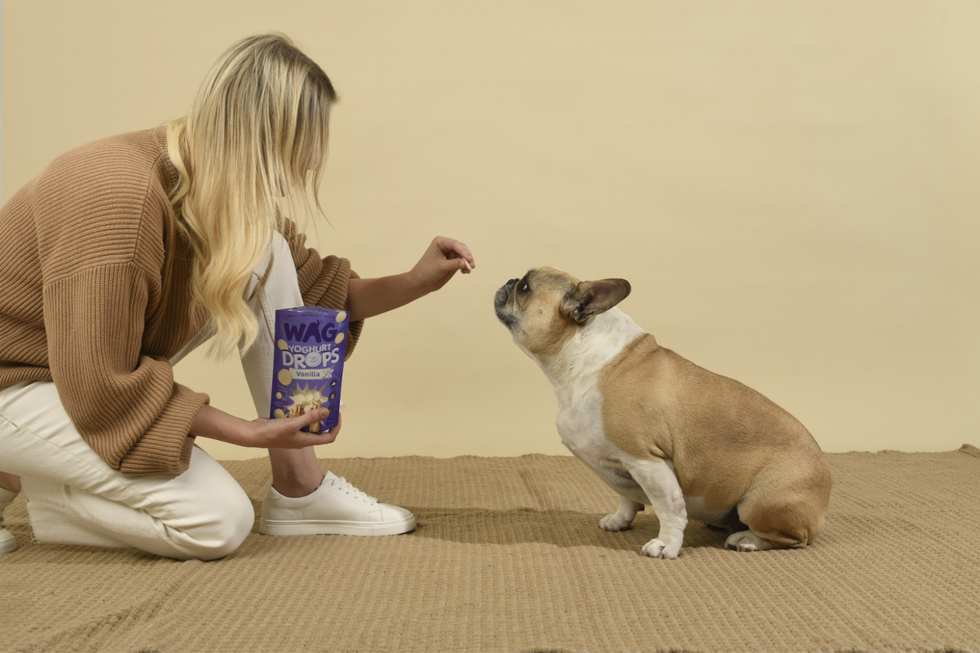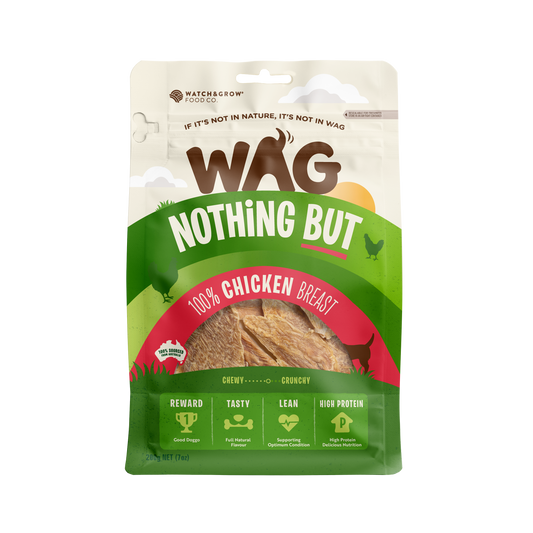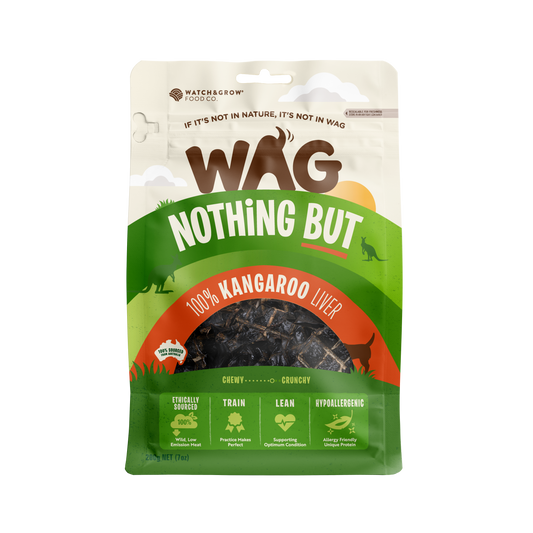With this new era of pet food and pet treats, transparency and the move away from cheap cereals is prevalent. We are starting to see responsible sourcing movements for food at a supermarket level, just like we are for our own doggos too.
We care where our meat comes from as well as where it ends up and as you know, we have a commitment to treating dogs to good health through ethical and sustainable practices. This means that we wanna treat Mother Nature and her animals right, through making sure we are selective with our supply chain and choose better meat from a better place.
All single ingredient WAG treats that your doggo enjoys throughout the day come from a high standard of animal welfare, and where applicable, hold animal welfare certification. Take a peek of how animal welfare standards are upheld across different proteins and different countries when it comes to your doggo’s treats.
Chicken
WAG Chicken Treats are sourced from local farmers and butchers in Queensland, and are ethically sourced and free range.
Our Chicken is compliant with the RSPCA Approved Farming Scheme. The RSPCA Approved Farming Scheme is ‘Australia’s leading independent certification scheme focused on animal welfare working closely with farmers to make a positive impact on the lives of Australia’s most intensively farmed animals by providing an environment that meets their behavioural needs’.
RSPCA farms are assessed and their standards are reviewed every five years with input from livestock industries and independent farmers.
Chickens on RSPCA Approved farms are encouraged to be active. They enjoy good lighting, perches, dry litter floor covering and space to move around. Whether raised indoors or with access to the outdoors, there’s a focus on providing for meat chickens’ behavioural and physical needs.
Chickens have:
- Good indoor environments (because even free-range chickens spend most of their time indoors)
- Space and good lighting, encouraging them to be active
- Can perch to rest and keep their bones and muscles strong
- Enjoy dry litter floor covering to scratch and dust bathe
Kangaroo
The commercial kangaroo industry is actually very sustainable and humane – kangaroos aren’t farmed and are 100% wild. In Australia, the industry works in close partnership with government and independent experts to monitor the population. To give you a little bit of insight, anybody who sources or sells kangaroo meat in Australia has to work within these guidelines to ensure sustainability:
- Around 3% of Australia’s 50 million kangaroos are used for meat production each year. Only 4 out of 48 species can be commercially harvested.
- Kangaroo populations rise and fall with seasonal conditions; during extended droughts, their numbers fall and invariably rise again when droughts break.
- Studies have shown there has been no long-term impact resulting from more than 60 years of commercial harvesting. All because of the use of strict and regulated quotas – based on scientific survey methods supported by the Australian government.
- Population surveys are conducted regularly to keep an eye on kangaroo numbers. A maximum quota of 15–20% of the kangaroo population can be harvested in any year.
“All kangaroo shooters are required to abide by either the Australian National Code of Practice for the Humane Shooting of Kangaroos and Wallabies for Commercial Purposes (2020) or the Australian National Code of Practice for the Humane Shooting of Kangaroos and Wallabies for Non-Commercial Purposes (2008). The key differences between commercial and non-commercial kangaroo shooters are the level of training and testing required, and the monitoring of compliance with the relevant code of practice.”
When it comes to culling kangaroos for commercial purposes, culling is considered more humane, and as said by RSPCA, the process of hunting wild-caught kangaroo “is way better than that of most intensively farmed animals.”
Antler
Even though WAG Antler is from New Zealand, the cornerstones for acceptable animal welfare are still the same as it is here in Australia:
- Freedom from hunger and thirst;
- Freedom from discomfort;
- Freedom from pain, injury and disease;
- Freedom to express normal behaviour; and
- Freedom from fear and distress.
Antlers are a clean and renewable dog treat. The annual growth of Antlers begins in Spring and ends in Winter with a Velvet Antler growing up to 2cm a day during this period. Once the Antler has finished growing and starts to calcify, the blood vessels at the junction of the Antler and the Stag’s crown close off and the skin, nerve and blood supply are no longer functional. Once Antler reaches this stage, it is then considered a hard Antler and is naturally shed and left in the wild.
Deer in New Zealand are both wild and farmed, and farmers abide by Deer Industry New Zealand’s ‘Environmental Management Code of Practice’ to ensure that adverse environmental effects are minimised to enhance the long-term sustainability of the industry and quality welfare of deer.
At a glance
These protein examples are just the tip of how we practice responsible sourcing. We believe that good treats start with good ingredients – which begins with ethically and sustainably sourced meat.
Our treats are inspired by Mother Nature and come from her, as-is. Treated well, pure and simple.
Shop the Recipe
WAG Team
Up Next
How are Yoghurt Drops made?







